Nissan doesn't need a saviour to get back on track, says CEO
By REUTERS | 16 May 2025
YOKOHAMA: Nissan Motor Co.'s new chief executive officer, Ivan Espinosa, says his rescue plan for the ailing automaker can work even without the help of an outside partner.
The Japanese carmaker has sufficient capital - about ¥2.2 trillion (RM64bil) in cash on hand and more in lines of available credit - to last the next 12 to 18 months, Espinosa said during an interview with Bloomberg TV.
That time frame is one-third to halfway through a recently outlined three-year turnaround effort.
"We have a solid footing in terms of liquidity," Espinosa said Thursday at Nissan's headquarters here.
"The point is not to do a partnership because we need to be partnered with somebody because of the cash position."
Nissan has ¥2.1 trillion in unused credit lines in addition to its own liquid reserves, but cash flow turned negative in its latest fiscal year and ratings agencies have cut its creditworthiness status to junk.
To stem its losses, the 46-year-old Espinosa promised a sweeping overhaul of Nissan's operations earlier this week in his first major act as CEO since taking the helm in April.
"I did a very deep assessment of the situation, understood the balance of our sales capacity and revenue capacity versus the total structure of a company, and discovered that this is not sustainable," he said.
"What we're doing is resetting the size of the company."
Espinosa plans to eliminate 20,000 employees and shutter seven of Nissan's 17 plants by the fiscal year ending in March 2028.
That restructuring comes on the heels of a $4.5 billion net loss reported for the most recent fiscal year.
The carmaker is withholding annual profit guidance for the current 12-month period due to uncertainty about the impact from US President Donald Trump's trade war.
The latest reset follows the collapse earlier this year of talks to join forces with Japanese peer Honda Motor Co.
Those negotiations ended in part due to disagreements about Nissan's willingness to make deeper cuts to production and personnel under former CEO Makoto Uchida, who stepped down at the end of March.
A more than two decade-long strategic alliance with France's Renault SA never fully gelled, leaving the Japanese carmaker today without a global partner with which to share vehicle development costs and pool investments in next-generation technology.
Nissan is still open to future pairings, Espinosa said, adding the carmaker is interested in working together with traditional manufacturers, technology companies and even firms based in China.
Deteriorating sales in the US and China have left Nissan saddled with an outdated product lineup, bloated dealership incentives and a mountain of debt.
To better match supply with that falling demand, Espinosa said the manufacturer's annual production capacity will drop to 2.5 million vehicles this year, one million fewer units than in 2024.
Trump's 25% tariff on all cars imported to the US, which took effect in April, is casting a shadow over most global automakers. It could be costly for all of Japan's export-heavy carmakers, but especially painful for Nissan.
Espinosa criticised Trump's trade policy as destabilising and unrealistic, saying no country has an adequate supply chain to support a vehicle manufactured entirely within its own borders.
But he hinted Nissan may shift some production around in North America and beyond to cope with the rapidly evolving US tariff regime.
"We have already worked in scenarios that allow us to pivot and move depending on what the final rules of the game will be," he said.
"We need to ensure competitiveness for our product lines."
For Espinosa, who has worked at Nissan for almost 25 years, many of the carmaker's most-pressing problems can be traced back to a decade ago when it targeted a profit-eroding annual production target of 8 million vehicles together with Renault.
That volume marker was set by former chairman Carlos Ghosn, an architect of the Nissan-Renault alliance who was ousted in a boardroom coup in 2018.
Since that time, Nissan has had three CEOs including Espinosa, and several failed restructuring efforts.
The full scale of Nissan's troubles surfaced in November, when it reported a 94% drop in first-half net income and cut its annual guidance by 70%.
The new plan to slash production capacity and jobs is long overdue, said Tatsuo Yoshida, a Bloomberg Intelligence senior auto analyst.
"Nissan's plight could have been minimised if it had taken these steps sooner," Yoshida said, adding: "The impact of these measures, compared to what other carmakers are doing or even what Nissan has done in the past, is unclear."
In a Reuters report, Espinosa was quoted as urging Japanese trade negotiators to move more quickly in negotiations with the United States towards securing lower tariffs.
"I would expect that they move faster, to be very honest. We do need to get clarity as soon as possible," Espinosa said, addressing the FT Future of the Car Summit in London via video link.
He was responding to a question on whether Japanese trade negotiators had moved fast enough to secure lower tariffs in their bilateral trade talks with the US.
Nissan has said its exports from Mexico and Japan accounted for just under 45% of its total US sales, putting the cost of US tariffs at an estimated 450 billion yen (US$3.08 billion) in the current business year, before mitigation measures are factored in.
The tariffs were making original-equipment manufacturers non-competitive, Espinosa said, and that Nissan has been lobbying the Japanese government for more clarity and stability.
Reviews
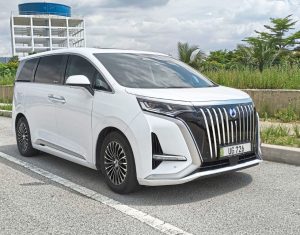
7.6
Denza D9 Premium AWD: Alternative indulgence
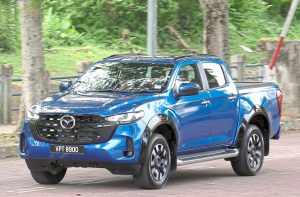
8.1
Mazda BT-50 High Plus: Big and bold
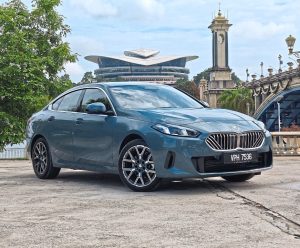
7.2
BMW 218 Gran Coupe Sport: First step into the next level
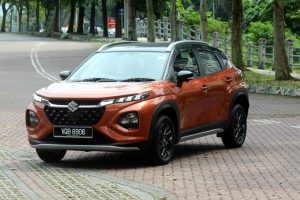
7.5
Suzuki Fronx: Cute city slicker
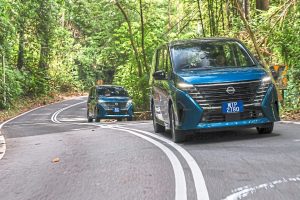
Nissan Serena e-Power: Big easy in the city
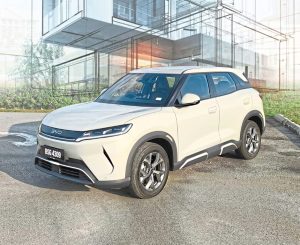
8.2
BYD Atto 2: Urban by nature
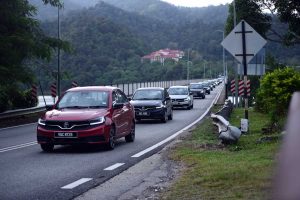
2026 Proton Saga: Right gear for the job

7.6
Honda Africa Twin Adventure Sports ES: Rugged refinement
Videos

BYD Atto2's rotating centre display

Free & Easy Media Test: Latest Proton X50 Flagship to Kuanta...

Zeekr Space Sunway City Video
